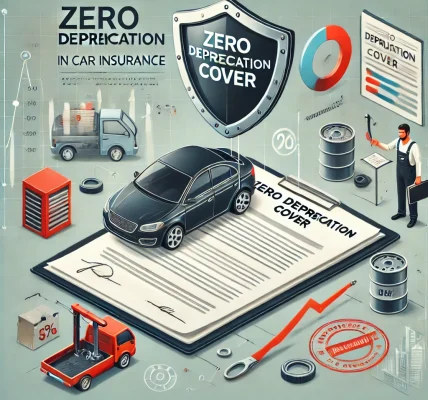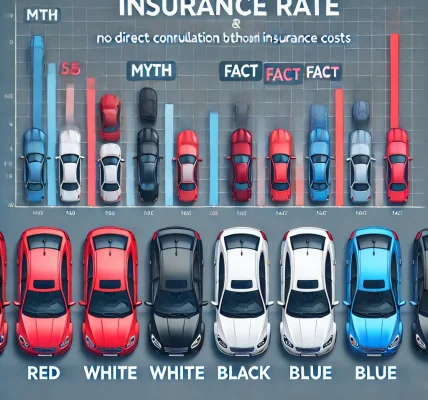IntroductionRelocating to a new city or state is an exciting experience, but it comes with various financial considerations, including car insurance rates. Many people don’t realize that their auto insurance premiums can change significantly based on their new address. Understanding how location impacts insurance costs can help you make informed decisions and avoid unexpected expenses.
This article explores the key factors that influence car insurance rates when moving, how different locations affect premiums, and tips to manage your insurance costs effectively.
Why Does Your Location Affect Car Insurance Rates?Auto insurance companies determine premiums based on several risk factors, and your location is one of the most important. Insurers analyze local statistics, accident rates, crime levels, and other geographic factors to assess the likelihood of claims.
Here’s how your new address can impact your car insurance rates:
- Population Density and Traffic ConditionsIf you move from a rural area to a highly populated city, your insurance rates may increase due to a higher number of accidents and claims.
Urban areas often have more traffic congestion, stop-and-go driving, and road hazards, increasing the risk of collisions.
In contrast, moving to a suburban or rural area with fewer vehicles on the road might lower your premium. - Crime Rates and Vehicle TheftAreas with high crime rates, including car theft and vandalism, result in higher insurance premiums.
If your new neighborhood has a low theft rate, insurers may offer lower rates as the risk of vehicle-related claims decreases.
Parking security matters: Living in an area where you can park in a secure garage rather than on the street may positively impact your rates. - Weather and Natural Disaster RisksIf you move to a region prone to hurricanes, floods, tornadoes, or wildfires, your insurance costs may rise due to the increased risk of vehicle damage.
Coastal cities, like Miami or New Orleans, tend to have higher insurance premiums compared to inland areas due to the risk of hurricanes and flooding.
States with frequent hail storms and heavy snowfall (e.g., Colorado, Minnesota) may also experience higher rates due to weather-related claims. - State-Specific Insurance Laws and RegulationsDifferent states have different minimum liability insurance requirements, which can affect premium costs.
Some states require Personal Injury Protection (PIP), which increases costs compared to states with only liability coverage.
No-fault states, such as Florida and Michigan, tend to have higher insurance rates since insurers must cover medical costs regardless of who caused the accident. - Local Insurance CompetitionIf you move to an area with many insurance providers, you may find lower rates due to competitive pricing.
Conversely, in states with limited insurance options, rates may be higher because of reduced competition among insurers. - Mileage and Driving HabitsIf your move results in a longer daily commute, your premium may increase due to more time spent on the road.
Moving to a walkable city with access to public transportation could lower your rates if you drive less frequently.
How Different Locations Compare in Car Insurance CostsTo give you an idea of how location affects car insurance rates, here’s a general comparison of premium costs:
Highest Car Insurance Rates (Expensive States)🔴 Michigan – Due to no-fault laws and high medical coverage requirements.
🔴 Louisiana – High accident rates and expensive lawsuit claims.
🔴 Florida – Risk of hurricanes, high crime rates, and uninsured drivers.
🔴 California – Heavy traffic congestion, high accident frequency, and natural disasters.
Lowest Car Insurance Rates (Affordable States)🟢 Maine – Low accident rates, fewer uninsured drivers, and competitive pricing.
🟢 North Carolina – Strict insurance regulations keep costs in check.
🟢 Vermont – Low population density and minimal accident claims.
🟢 Ohio – Competitive insurance market and fewer claims.
What to Do When Moving to a New LocationIf you’re planning to move, here are some steps to ensure a smooth transition for your car insurance: - Notify Your Insurance Company EarlyInform your insurer before you move to avoid coverage lapses.
Some states require new residents to update their insurance within 30-90 days of moving. - Compare Insurance Quotes in Your New LocationDifferent insurers may offer better rates based on local risk factors.
Get quotes from multiple providers to find the best coverage at the lowest cost. - Check State Insurance RequirementsResearch minimum liability coverage requirements in your new state.
If your new state has higher coverage limits, you may need to adjust your policy. - Consider Discounts and AdjustmentsMoving may make you eligible for discounts, such as lower mileage or a safer neighborhood.
If you now have access to garage parking, inform your insurer for a potential discount. - Update Your Address on Vehicle Registration and LicenseAfter moving, update your driver’s license and vehicle registration to comply with state laws.
Some states may require vehicle inspections before registration.
Can You Keep Your Current Insurance Policy After Moving?It depends on whether your insurance provider operates in your new state. If your insurer doesn’t provide coverage in that state, you’ll need to switch to a different insurance company.
Even if your current insurer is available, they may require policy adjustments to comply with state regulations.
Conclusion: Be Prepared for Insurance Rate ChangesMoving to a new location affects car insurance rates due to factors like traffic conditions, crime rates, state laws, and weather risks. While some moves may lead to lower premiums, others may increase costs significantly.
Key Takeaways:✅ Urban areas generally have higher insurance rates than rural areas.
✅ High-crime and high-risk weather zones result in higher premiums.
✅ Moving to a new state may require adjusting your policy to meet legal requirements.
✅ Always compare quotes and explore discounts before updating your policy.
By understanding these factors, you can plan ahead and make informed decisions about your car insurance when relocating. 🚗📍




